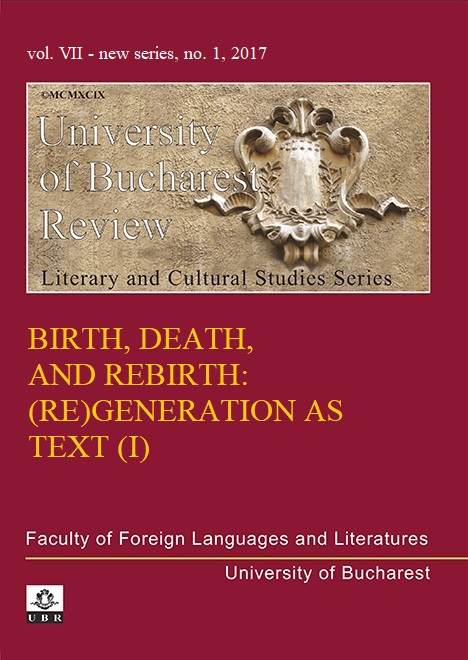CULTURAL DISSOLUTION AND RE(BIRTH) IN
JHUMPA LAHIRI’S THE LOWLAND
CULTURAL DISSOLUTION AND RE(BIRTH) IN
JHUMPA LAHIRI’S THE LOWLAND
Author(s): Adriana Elena StoicanSubject(s): Cultural history, Fiction
Published by: Editura Universităţii din Bucureşti
Keywords: nomadism; rhizome; root; transcultural; transmigrant; vegetal;
Summary/Abstract: Jhumpa Lahiri’s novel The Lowland traces the traumatic effect of a family event upon members of different generations – wife (Gauri), brother (Subhash) and daughter (Bela) – whose lives continue to unfold outside India. The analysis discusses the vegetal metaphors of specific plants and roots employed by Lahiri in order to illustrate the emergence of different patterns of (up) rooting that weave the fabric of her transmigrant characters. By closely investigating the intersecting axes of groundedness and deterritorialization, the paper aims to disentangle the significance of the rich Deleuzian imagery that surfaces in the cultural configuration of transplanted individuals, with a focus on Subhash. More specifically, the discussion sets out to establish whether the abundance of rhizomatic elements is meant as a glorification of nomadic subjectivity that implicitly idealizes uprootedness as a precondition for the enlargement of cultural perspectives. The present paper analyzes Subhash’s cultural outlook, arguing that his self-transformation entails a symbolic killing of some Indian traditions paralleled by the birth of new outlooks. This process of regeneration situates the protagonist beyond the possibility of fixed allegiances, in a transcultural dimension. The analysis considers theories regarding nomadism, transnational migration and the significance of transgression as a strategy of cultural reinvention.
Journal: University of Bucharest Review. Literary and Cultural Studies Series
- Issue Year: VII/2017
- Issue No: 1
- Page Range: 33-44
- Page Count: 12
- Language: English

